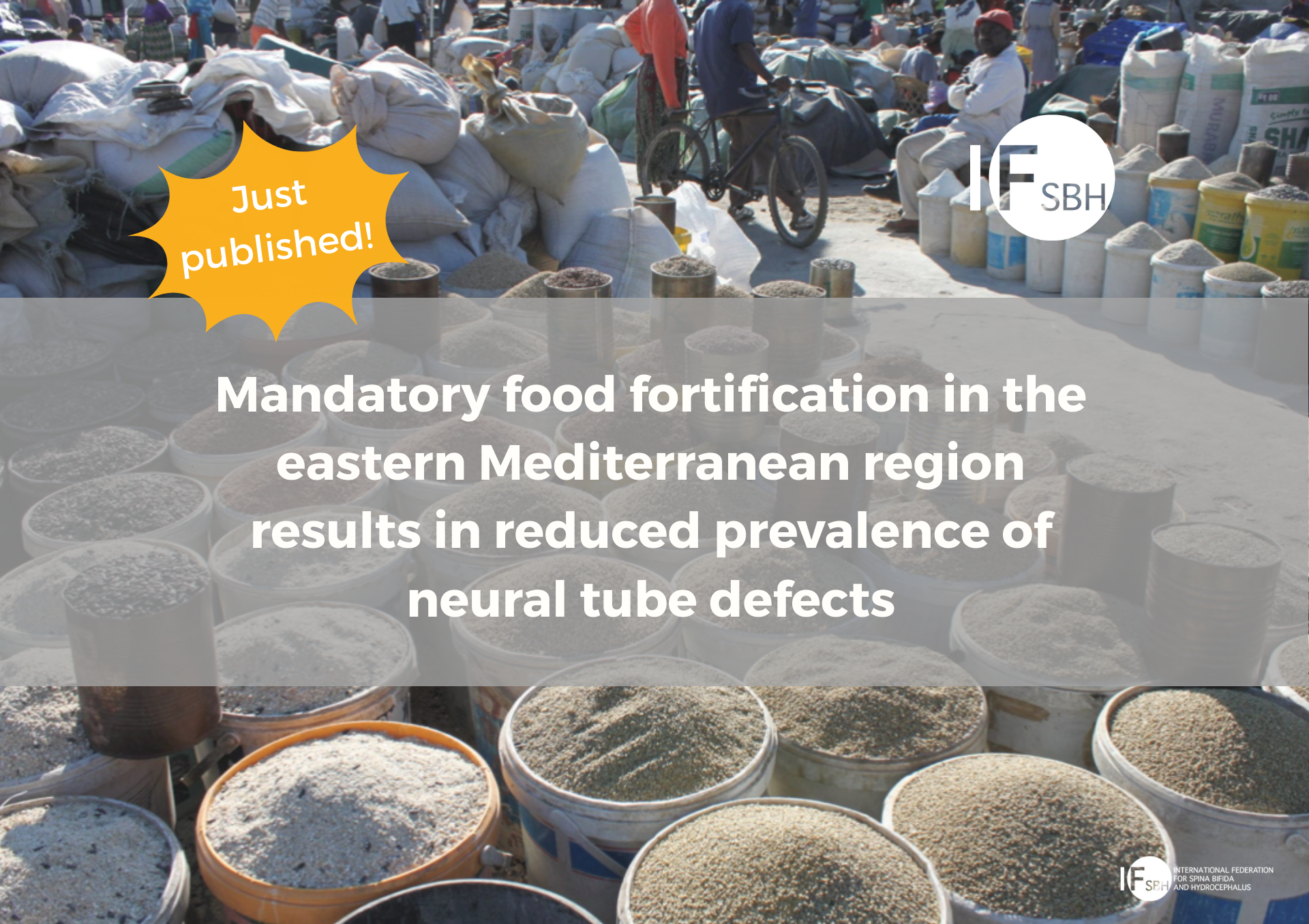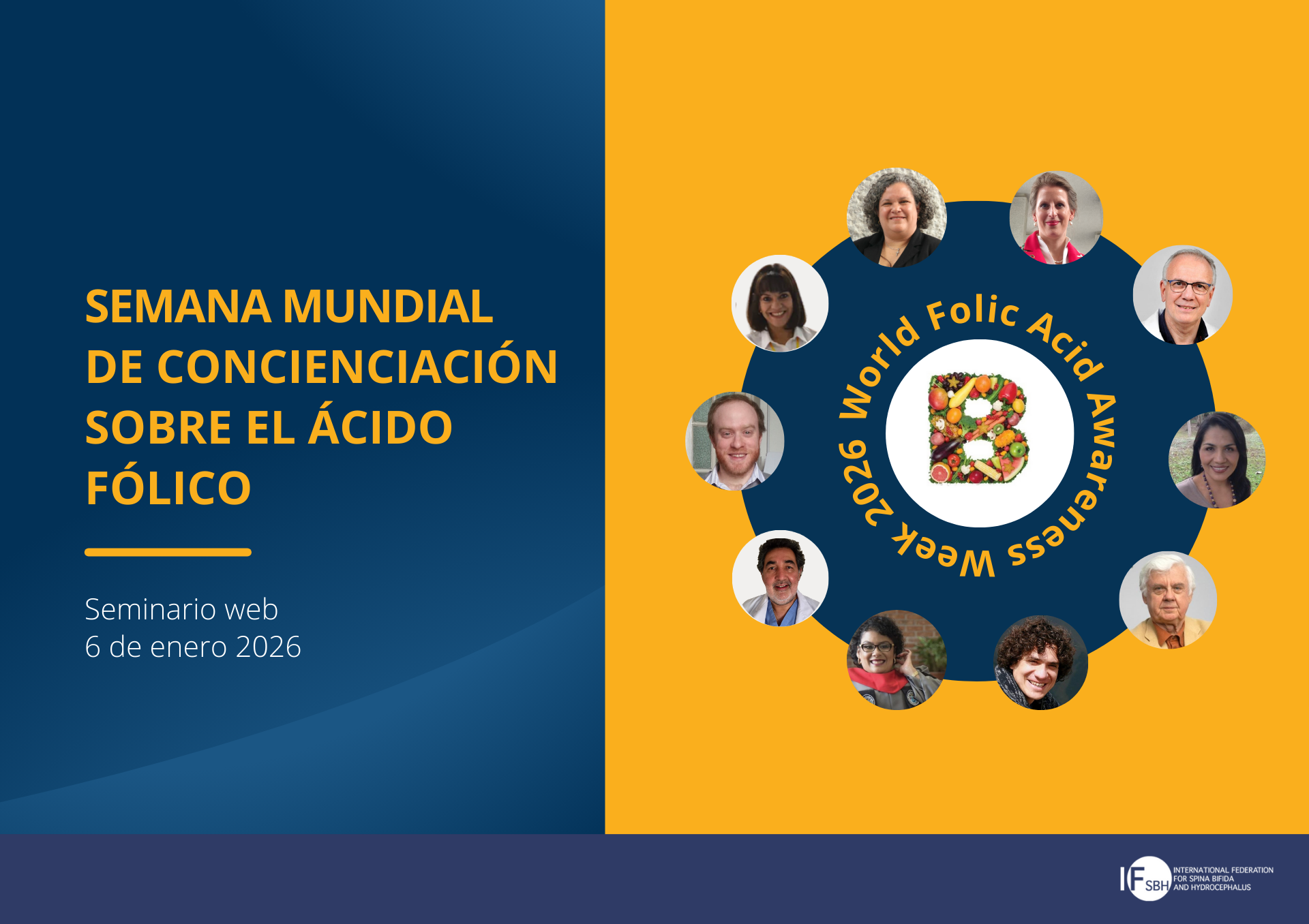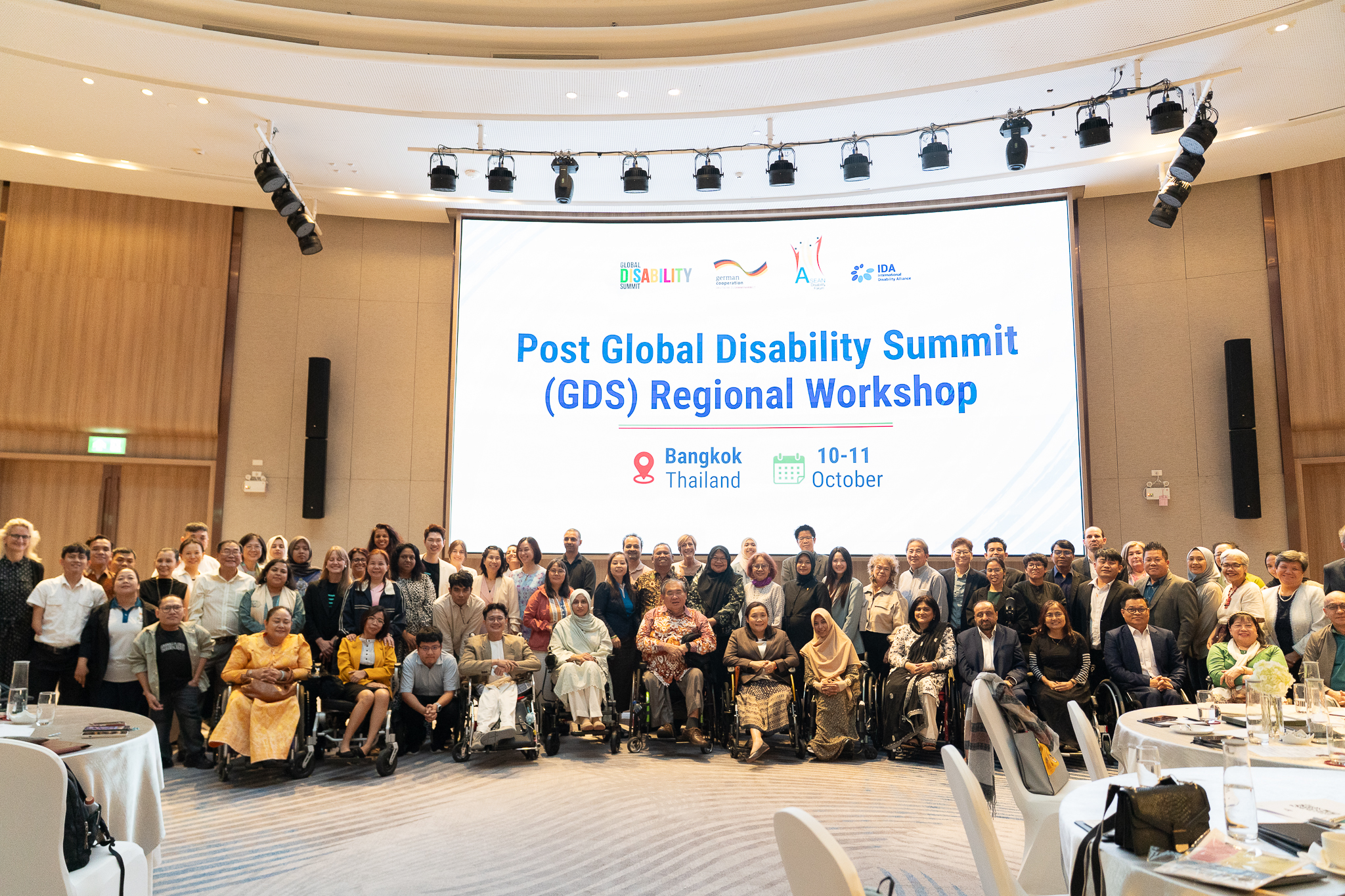Folic acid is essential for the proper closing of the neural tube of a fetus within 28 days after conception. Failure to close properly can result in a neural tube defect or NTD, such as spina bifida which can lead to permanent disability, and anencephaly which always causes death. Taking 400 micrograms of folic acid daily from 8 weeks before conception till 12 weeks into the pregnancy greatly reduces the risk of NTDs. It is impossible to get this amount from food. The only way is through provision of folic acid tablets or through fortification of cereal flour with folic acid.
Fortified flour has proven[1] [2] to be the only viable way to provide essential vitamins and minerals, notably iron and folic acid, to adolescent girls and women in Africa in a sustainable manner.
To promote the availability of good quality wheat- and maize flour enriched with at least iron and folic acid, the Food Fortification Initiative (FFI), the International Federation for Spina Bifida and Hydrocephalus (IF), Helen Keller International and the then AkzoNobel, now Nouryon, created the Smarter Futures partnership some 10 years ago. Funding was provided by the Dutch government and by the partners involved.
Smarter Futures is a uniquely organised public-private-civic initiative that brings together cross-sector stakeholders who share a common mission, management, and mutually reinforcing activities. Smarter Futures has carved a very clear and special niche and gained recognition as a partnership that encourages discussions and identification of key points to advance implementation of wheat and maize flour fortification in Africa. In their meetings and workshops, Smarter Futures brings together multi-sectoral public-private teams of participants from several African countries as well as Western countries, who freely talk about their nutritional situation, fortification needs, flour production, industry capacity, willingness to fortify, legislation and other aspects related to the feasibility of flour fortification in Africa. The engagement of the private sector (milling industry) in each country is critical to the successful implementation of mandatory fortification.
Smarter Futures does not itself invest large programme resources but supports and strengthens the efforts of its network partners.
The aims of Smarter Futures are to improve the nutritional quality of wheat and maize flour through the addition of essential vitamins and minerals, notably iron and folic acid, to foster good understanding between millers and government to improve compliance as wells as create ownership and to create new fortification advocates through the involvement of African based MSc and PhD students and organizations of parents with children with severe congenital anomalies of the brain or spine.
As project holder of Smarter Futures and key partner, the International Federation for Spina Bifida and Hydrocephalus (IF), is driven by its mission to decrease the birth prevalence of spina bifida and hydrocephalus through primary prevention measures and to improve the quality of life for those living with these disabilities. IF represents over 70 Member Associations worldwide of which 12 are located in Africa, notably Algeria, Egypt, Ethiopia, Kenya, Malawi, Morocco, Nigeria, South Africa, Sudan, Tanzania, Uganda, and Zimbabwe. These associations, healthcare professionals, and other interested partners provide advocacy, primary and secondary prevention activities in the countries where they are based.
How does Smarter Futures work?
- Through advocacy on the importance and cost-benefit of fortification, providing training to parents of children with preventable birth defects, and expanding advocacy through a more active involvement of civil society in advocacy and monitoring. Advocacy is also provided to Ministers of Finance and Economic Affairs on the costs and benefits of flour fortification, to ensure their willingness to invest and reduce taxes on imports of premix and to millers on the importance of their role in reducing birth defects and to help ensure compliance.
- Through developing and expanding strategies for grain fortification using the African Maize Fortification Strategy and the Rice Fortification Feasibility study for Africa which were both completed in 2016.
- Through building capacity for quality assurance and quality control (QA/QC), fortification technology, and developing and disseminating suitable tools for appropriate fortification and for training.
- Through supporting countries technically in monitoring and surveillance, using available data sources to see trends in iron deficiency anemia prevalence, as well as birth surveillance of NTDs. As tool for low-cost surveillance Smarter Futures developed Fortimas, an approach for tracking the population coverage and impact of a flour fortification programme.
- Through providing technical assistance to address current hurdles in implementation at country level and solve problems related to fortification.
For more information, see https://www.smarterfutures.net

GFDx, an analysis and visualization tool for data on food fortification. For the English version click here and the Spanish version here
[1] Anaemia prevalence may be reduced among countries that fortify flour, Jonathan S. Barkley, Kathleen S. Wheeler and Helena Pachon
[2] Folate, and Vitamin B-12 Status Increased among Women and Children in Yaound´e and Douala, Cameroon, 1 Year after Introducing Fortified Wheat Flour, Reina Engle-Stone, Martin Nankap, Alex O Ndjebayi, Lindsay H Allen, Setareh Shahab-Ferdows, Daniela Hampel, David W Killilea, Marie-Madeleine Gimou, Lisa A Houghton, Avital Friedman, Ann Tarini, Rosemary A Stamm, and Kenneth H Brown, http://jn.nutrition.org/content/early/2017/06/07/jn.116.245076 (accessed 3 July 2017)





